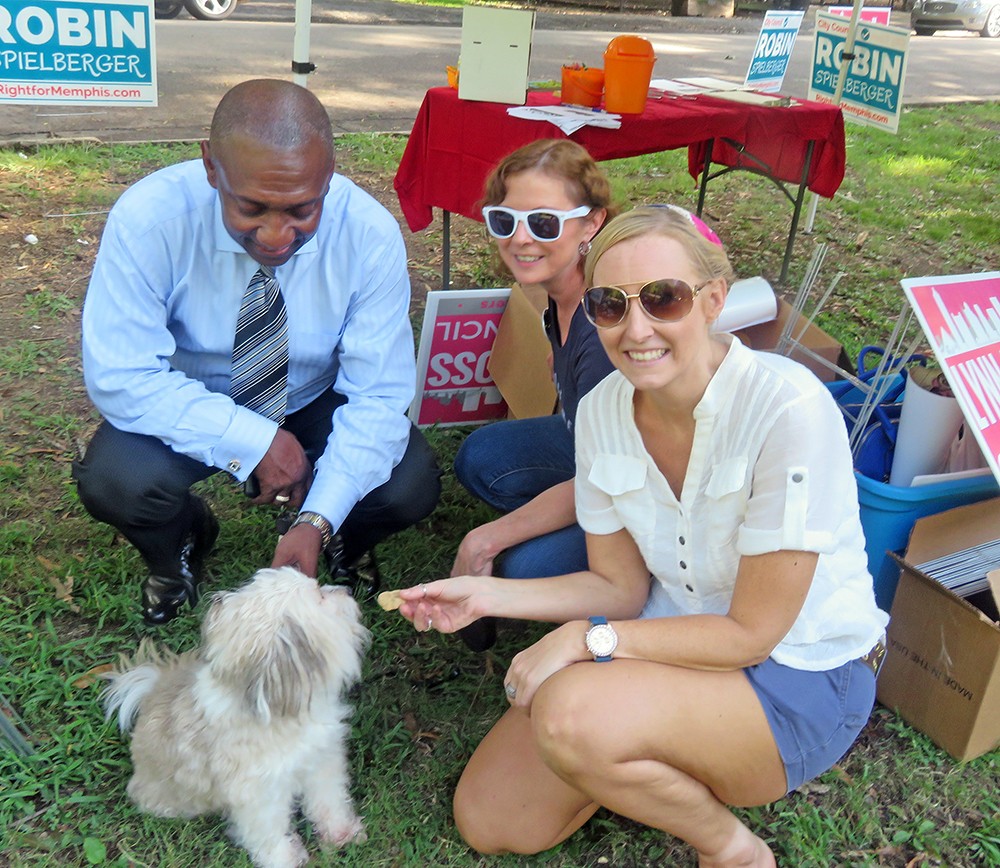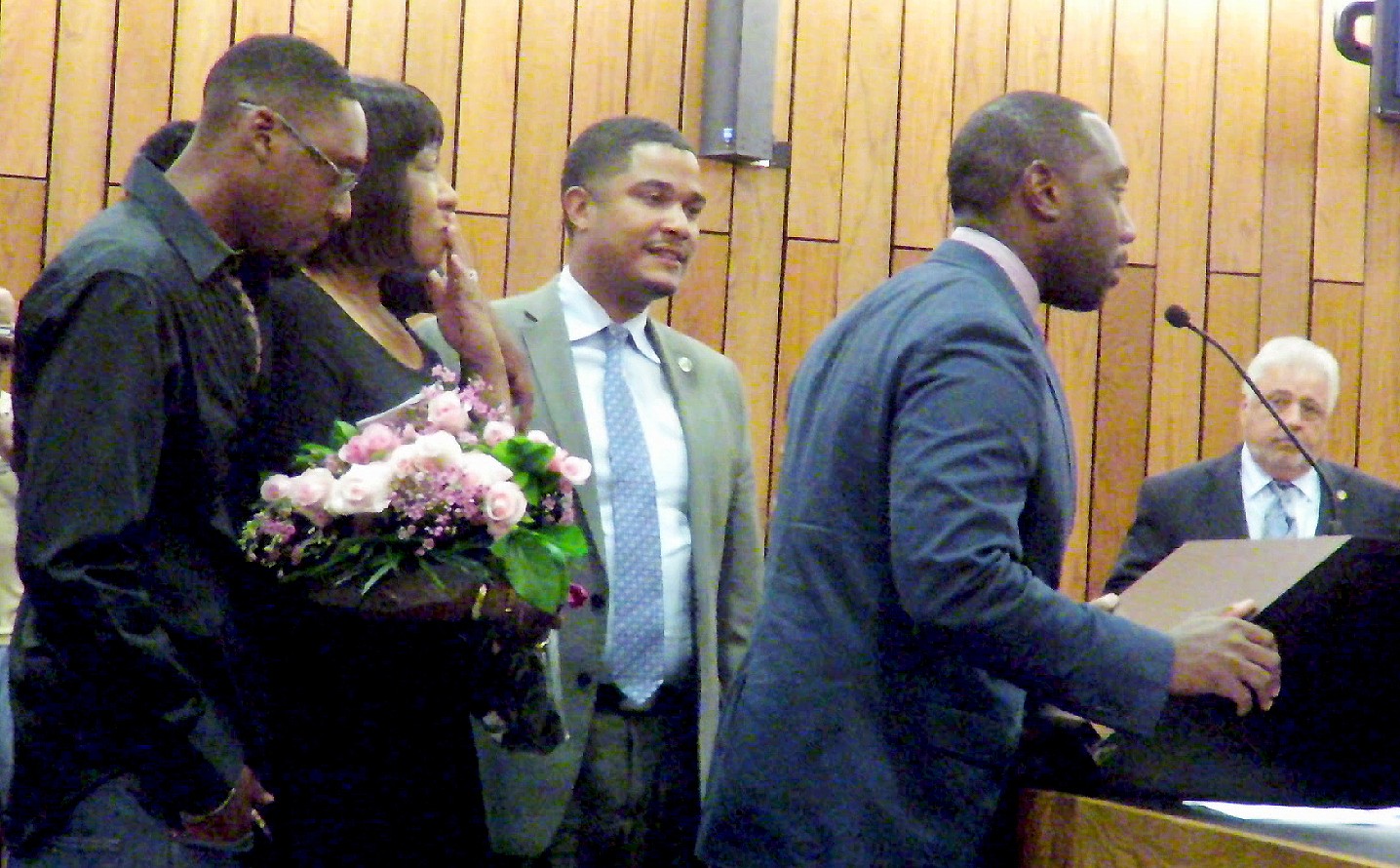Even as most political attention locally is trained on an ongoing city election season, Shelby County government has a political crisis on its hands in the form of an ongoing power struggle between branches of government.
When the Shelby County Commission concluded its last public meeting of the 2014-15 cycle on Monday, it was still in a state of uncertainty and division as to the nature of its own leadership in the year to come, having elected Steve Basar as its chairman two weeks ago, only to un-elect him in a reconsideration vote an hour later.
But the commissioners seemed to have less difficulty on Monday in unifying against a common foe: the administration of Shelby County Mayor Mark Luttrell, which has gotten involved in a power struggle with the commission — one that consistently has put the two entities at loggerheads as to just who is the boss in the county system.
The contest was joined in two ways on Monday. First, when Luttrell requested and was given the opportunity to address the commission to open the meeting, in his remarks, the mayor made an effort to review some of the differences between his administration and the commission on budgetary and spending priorities and proposed a forthcoming “summit” with the county’s legislative body to review priorities and to try to get them in sync.
One item mentioned in the mayor’s remarks — a workforce development grant of $175,000 to Seedco, a national nonprofit organization, to train local residents for retail positions — would become the focus of a debate and test-case vote, one that the mayor, who opposed the grant, would lose by a 10-2 vote.
Luttrell’s opposition to the Seedco grant, much of which would be in conjunction with the opening of a Just-A-Buck dollar store, was that routing economically at-risk citizens into relatively low-paying retail-sales positions was not the proper focus for the county’s workforce-development efforts.
In the commission’s later debate on the Seedco grant, the mayor’s position was supported by Commissioners Basar and David Reaves, two Republicans who often find themselves on opposite sides of the commission’s internal politics, but who concurred in opposition to the grant.
Basar, as Luttrell had, challenged the emphasis on retail sales vs. higher-paying kinds of employment, and pointed out that Seedco had in 2012 been charged by the federal government with fraud in its New York City job-placement operation.
Reaves made the point that the commission, once having made a grant to Seedco, would have no further oversight over its disposition, contrasting that with workforce development programs conducted under two existing entities, the Greater Memphis Alliance for a Competitive Workforce (GMACW), operated under the auspices of the city/county EDGE board, and the federally sponsored Workforce Investment Network (WIN).
The commission would have significant input in either of those workforce development programs without having to “spend a nickel,” said Reaves, who called the proposed Seedco grant an exercise in “pork.” He offered a motion, seconded by Basar, to refer the matter of the Seedco grant back to committee while the commission looked into doing something with GMACW or WIN.
The motion went down, however, and it became apparent that something more than pure cost-accounting or workforce-development policy was involved in the debate when influential GOP Commissioner Heidi Shafer, the body’s budget chair and normally an opponent of grants in principle, came down hard for the Seedco grant.
Shafer has made no secret of her view that the Luttrell administration had arrogated too much authority to itself, particularly in its dealings with the commission during recent budget negotiations, when the administration declared a $6 million surplus but opposed efforts by Republican members to offset enough of that amount to allow for a one-cent decrease in the county tax rate.
Other members, Democrats and Republicans, have nursed other grievances, and there developed an apparent post-budget consensus on the commission for the body to look into having its own legal recourse and independent vetting sources.
The commission has meanwhile pressed for more candor from the administration on the county fiscal situation and secured an administration pledge in last week’s committee sessions for a “truing-up” this fall of the county’s fluid revenue status.
At one point in Monday’s discussion of the Seedco grant, after Luttrell had left the auditorium, GOP Commissioner Terry Roland confronted administration CAO Harvey Kennedy with an accusation that “it was kind of disrespectful for the mayor to come up here and talk about a summit when he has run roughshod over us for five years. … When you look at that charter, what it says is that this body has the power. … At the end of the day, we are the governing body.”
Later in the debate, Kennedy called Roland’s characterization of relations between the commission and administration “extremely inaccurate” and insisted that the county charter provided “shared responsibility” for the branches of government and that “we don’t work for the commission.”
Whatever the case, relations between the two branches could hardly be more strained, and it would seem that Luttrell’s desired “summit” with the commission, if and when it ends up taking place, could be the last best chance of patching things up.
Meanwhile, the commission will attempt once again to resolve its chairmanship question at its September 14th public meeting, with Commissioner Van Turner, a first-term Democrat, presiding as acting chair.
DOGGING THE VOTE:
 JB
JB
Three candidates in the Memphis city election who are running along similar and somewhat unorthodox lines are including an emphasis on shoring up animal rights in their platforms and
collaborated in a meet-and-greet at the Overton Bark dog park at
Overton Park on Saturday.
It didn’t take long for this little terrier, belonging to an attendee, to commit himself and come looking for a constituent service — to wit, a dog biscuit — from (l to r) mayoral candidate Mike Williams; Lynn Moss, candidate for City Council, District 9, Position 2; and Robin Spielberger, candidate for Super district 9, Position 1.
Two other issues held in common by the three are support for
retaining the Mid-South Coliseum and restoration of lost benefits for
city employees.
 Jackson Baker
Jackson Baker